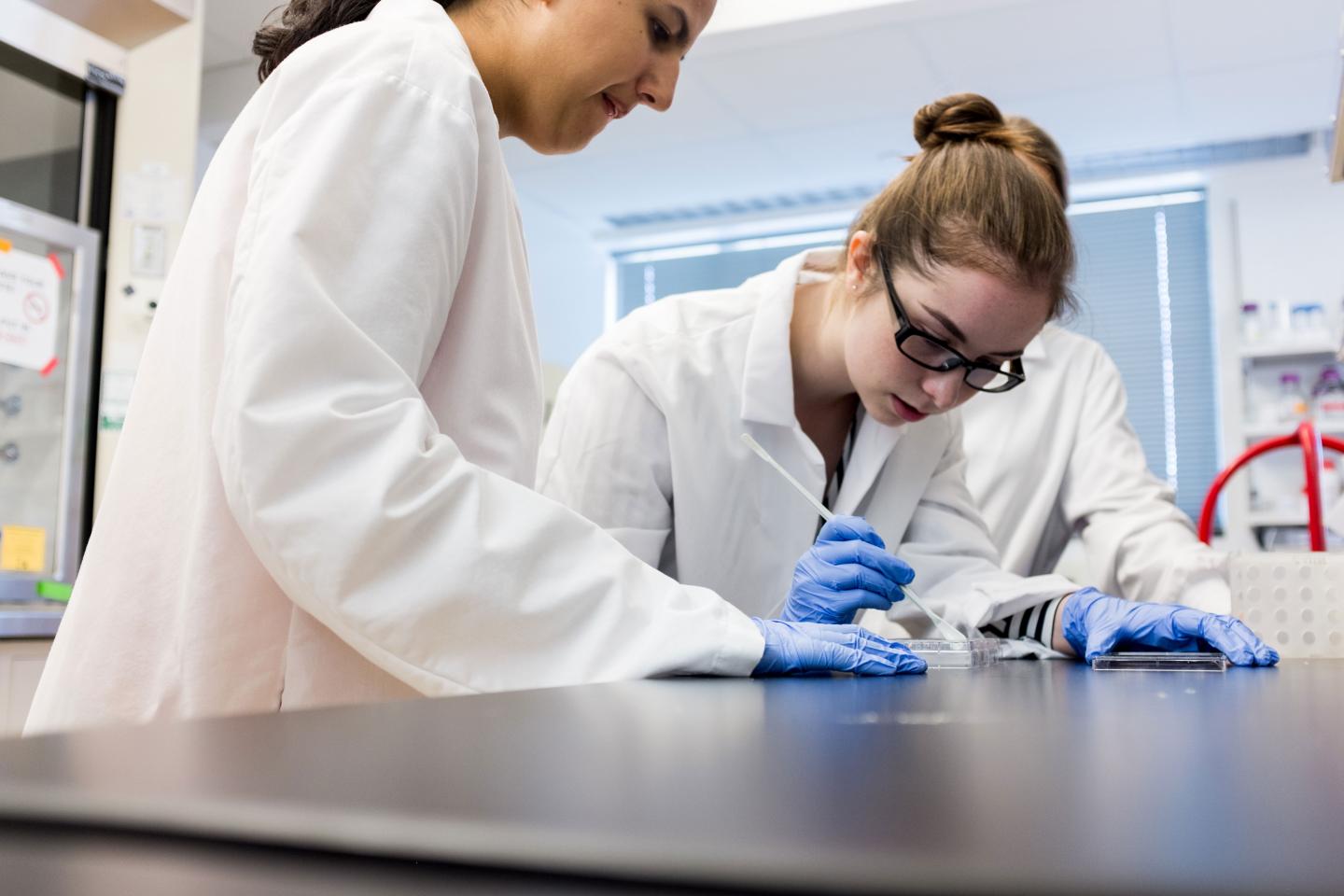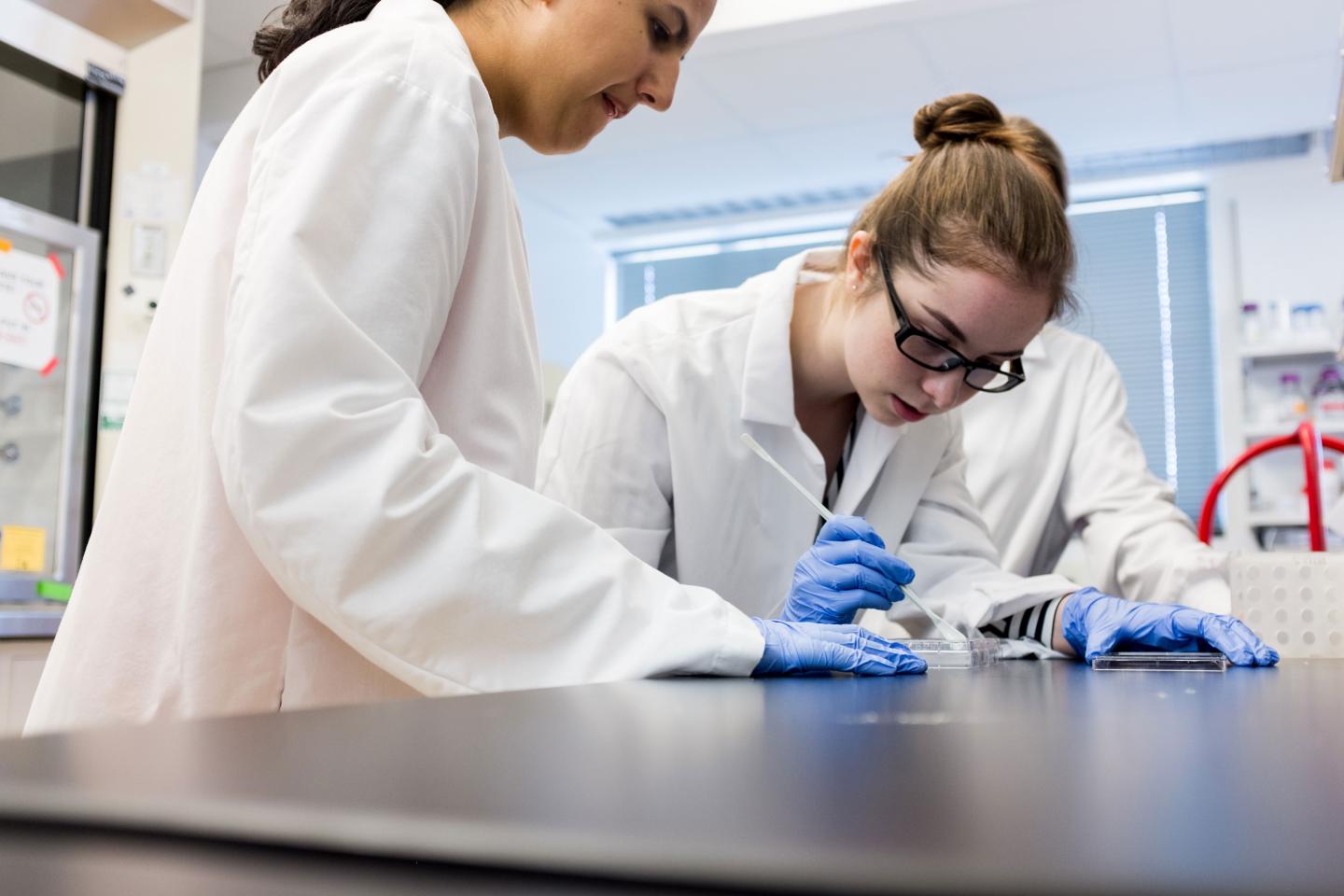
Credit: Rensselaer
Troy, N.Y. – We know Alzheimer's as a brutal disease that dismantles our loved ones and condemns them to death. But science and engineering researchers look inside the disease to identify early warning signs and develop the imaging techniques to see them, to unravel the biochemical puzzle that creates a toxic clump of misfolded proteins, and to develop and test new drugs and therapies that chip away at cognitive decline. The insights that emerge from such research are the seeds for medicine in the form of diagnostic tools, treatments, and hopefully, a cure.
To bolster the connections between benchside and bedside, the National Institutes of Health National Institute on Aging has awarded Rensselaer Polytechnic Institute a five-year $1.5 million training grant to support a new Alzheimer's Disease Clinical and Translational Research Training Program. The program positions Rensselaer students to contribute to Alzheimer's research by exposing them to a range of biotechnology and lighting research on neurodegenerative diseases, including a summer clinical rotation in medical research at the Icahn School of Medicine at Mount Sinai, with whom Rensselaer has an existing partnership.
"We want our students to understand this disease in a holistic sense and carry that knowledge through their education and their career," said Mariana Figueiro, principal investigator on the grant, and director of Rensselaer's Lighting Research Center (LRC). "The perspective they gain, built upon the strengths of research at Rensselaer, will improve their ability to develop more effective diagnoses, treatments, and cures."
The grant acknowledges the potential impact of research at Rensselaer, said Deepak Vashishth, director of the Center for Biotechnology and Interdisciplinary Studies (CBIS), where research in biomedical engineering, biological sciences, and chemical engineering and chemistry explores the mechanistic underpinning and develops new markers, and therapeutic and non-therapeutic interventions for Alzheimer's diseases.
"As a technological university, Rensselaer is a critical starting point for advances in healthcare," said Vashishth. "We want our students to see the big picture of Alzheimer's research that's formed by multiple investigations across the Institute, and the connections to clinical work at Mount Sinai."
Research on neurodegenerative diseases by researchers at the Rensselaer CBIS includes findings that explain how a genetic mutation implicated in Familial Alzheimer's Disease leads to an overabundance of Amyloid Beta-42, protein clumps that are a hallmark of the disease; an alternative "N-terminal hypothesis" for the mechanism that causes the disease based on the kinetic stability of amyloid formations; and exploration of the links between glycans, such as heparin sulfate, and protein aggregation. At the LRC, Figueiro is conducting clinical trials on the effects of tailored lighting interventions — developed using biophysical understanding of how the retina converts light signals into neural signals for the circadian system — on sleep, mood, and behavior in older adults with Alzheimer's disease and related dementias living at home and in long-term care facilities.
The program will fund eights students per year in understanding of the interdisciplinary, clinical, and translational nature of research on Alzheimer's disease and related dementias, how it depends on fundamental underpinnings of both science and engineering, how it leads to innovative new scientific disciplines and technologies, how it can be applied to clinical settings, and how commercial products are developed.
Key aspects of the training program includes a set of courses with a core course on "Perspectives in Alzheimer's Disease Research," seminars and research symposiums building on campuswide programs at Rensselaer and clinical and industry partners, mentoring and a multidisciplinary thesis committee, industrial and clinical externships, and training in entrepreneurship and commercial translation. Mount Sinai's Ronald M. Loeb Center for Alzheimer's Disease and industry partners will provide short-term training and research projects to students during their summer rotation. The program draws on the resources of CBIS, the LRC, the Rensselaer Institute of Data Exploration and Application (IDEA), and the Severino Center for Technological Entrepreneurship, and includes students in the schools of science, engineering, and architecture.
Research at Rensselaer fulfills the vision of The New Polytechnic, an emerging paradigm for higher education which recognizes that global challenges and opportunities are so great they cannot be adequately addressed by even the most talented person working alone. Rensselaer serves as a crossroads for collaboration — working with partners across disciplines, sectors, and geographic regions — to address complex global challenges, using the most advanced tools and technologies, many of which are developed at Rensselaer. Research at Rensselaer addresses some of the world's most pressing technological challenges — from energy security and sustainable development to biotechnology and human health. The New Polytechnic is transformative in the global impact of research, in its innovative pedagogy, and in the lives of students at Rensselaer.
###
About Rensselaer Polytechnic Institute
Rensselaer Polytechnic Institute, founded in 1824, is America's first technological research university. For nearly 200 years, Rensselaer has been defining the scientific and technological advances of our world. Rensselaer faculty and alumni represent 85 members of the National Academy of Engineering, 17 members of the National Academy of Sciences, 25 members of the American Academy of Arts and Sciences, 8 members of the National Academy of Medicine, 8 members of the National Academy of Inventors, and 5 members of the National Inventors Hall of Fame, as well as 6 National Medal of Technology winners, 5 National Medal of Science winners, and a Nobel Prize winner in Physics. With 7,000 students and nearly 100,000 living alumni, Rensselaer is addressing the global challenges facing the 21st century–to change lives, to advance society, and to change the world. To learn more, go to http://www.rpi.edu.
Media Contact
Mary Martialay
[email protected]
@rpinews
http://news.rpi.edu/
Original Source
https://news.rpi.edu/content/2017/09/27/confronting-dementia-lab-bedside





